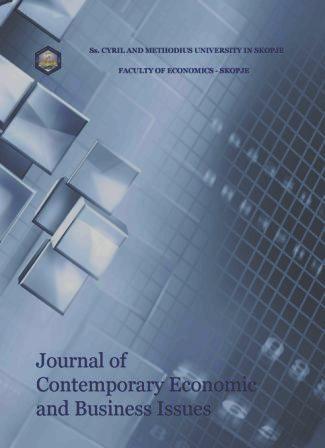INCOME AND PRICE ELASTICITIES OF MACEDONIAN EXPORT AND IMPORT OF GOODS – A PANEL APPROACH
Keywords:
income and price elasticities, imperfect substitutes model, trade, dynamic panel estimators, two-step Difference GMM, North MacedoniaAbstract
This paper uses a sectoral version of the conventional Imperfect substitutes model to motivate a parsimonious estimation of trade elasticities. The elasticities we compute depend directly on the specialization of trade across sectors, which is believed to add econometric precision to our estimates. On the other hand, estimates of income and price elasticities in the existing literature dealing with the case of North Macedonia are typically obtained from aggregate data, which tend to mitigate the importance of sectoral specialization. The basic assumption of the imperfect substitutes model is that neither imports, nor exports serve as perfect substitutes for domestic goods. Moreover, our import and export functions along with the income and price variables, consider some additional parameters as well, such as foreign direct investments and tariffs on imports. To this end, we were able to obtain theory-implied estimates of import and export income and price elasticities for North Macedonia – i.e. trade elasticities relevant to policy - and ultimately to calibration choices. The income and price elasticity coefficients, both in the import and in the export model, have the expected signs - increases in income positively affect exports and imports (coefficients of 0.29 and 0.85, consequently), while increases in prices lower them (coefficients of -0.23 and technically 0, respectively). Judging by the size of the coefficients, income
effects appear to be much more substantial than price effects.
Downloads
Published
Issue
Section
License
Authors retain copyright of the published papers and grant to the publisher the non-exclusive right to publish the article, to be cited as its original publisher in case of reuse, and to distribute it in all forms and media.
Authors are permitted to deposit publisher's version (PDF) of their work in any repository, personal and institutional websites, but full bibliographic information (authors, titles, volume, issue etc.) about the original publication must be provided.

